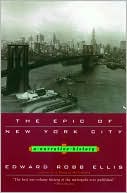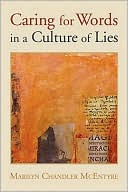Finding Neverland: A Review
This Week’s Edition of Friday at the Movies: Spotlighting Films About Writing (Part II)
Missed last week's edition? Read Part I of this series (a review of Finding Forrester.)
Tonight's Spotlight: Finding Neverland (a review)
This review was originally written in March 2005 following the release of the film.
The story of Peter Pan has endeared itself to young and old alike. Many remember the theatrical adaptations or the bright colors and winsome songs of the Disney cartoon. But to understand the story of the boy who never grew up, one must read the original version written by the Scottish novelist and dramatist, J. M. Barrie. Tinged with childish longing, sorrow, and cruelty, this tale does not have the same feel as its adaptations. One may well wonder why it became a children’s classic. Yet, many parts are also filled with beauty and innocence.
Such is also Finding Neverland: a movie delving into concepts of happiness and sorrow -- the beauty of life and the tragedy of death.
Johnny Depp plays the eccentric novelist, J.M. Barrie, in a winning and believable role. However, as an article in The New Yorker observes, "Depp resembles Barrie in no way, except in his slenderness of form. We get a passable, soft stab at a Scottish burr but no mustache; we see more of the sweet side of Barrie." Indeed, this is not a film about Barrie's life (it barely touches the surface), but it is a well-done tribute and shows how Barrie came upon his inspiration for his most famous play, Peter Pan.
The movie begins in 1904 on the opening night of Barrie's play, Little Mary, which proves a terrible failure. However, the theater manager (played by Dustin Hoffman) is willing to give Barrie a second chance. Slightly scarred by the rejection of his previous attempt, Barrie professes, "I can do better."
Barrie seeks out the solace of Kensington Gardens to begin brainstorming ideas for a new play. Here he finds his inspiration in the form of the four young Llewelyn Davies boys (George, Jack, Michael, and Peter) and their recently widowed mother, Sylvia (played by Kate Winslet).
Barrie, throughout the film pictured as a child at heart, immediately befriends the family. He becomes a sort of surrogate father to the grieving children, enchanting them with afternoon games of Cowboys and Indians, knights and kings, and explorations of "darkest Africa."
Peter (movingly played by the young Freddie Highmore) appears to be the one most affected by his father's death. He has grown up too fast, losing the imagination of a child, unable to participate in the games of his brothers. Barrie helps him to regain the childhood he lost, encouraging him to write and pour out his thoughts on paper.
Barrie sees himself in Peter. When he was only six years old, his older brother, David, died in a skating accident. Barrie explains that his mother was terribly affected by this and would never speak or look at him. One day he dressed up in David's clothes and went to her. He says that after that day the boy James just disappeared. "I like to think he went to Neverland."
 Barrie mourns over his lost childhood and that he grew up too quickly. He laments, "Boys should never be sent to bed. They wake up a day older."
Barrie mourns over his lost childhood and that he grew up too quickly. He laments, "Boys should never be sent to bed. They wake up a day older."But the film does not idolize childhood -- only the innocence and the romantic imagination of children. It is also a beautiful coming of age story. When one of the Davies boys shows concern for his mother, Barrie remarks, "The boy is gone. In the last thirty seconds, you just became a man."
Unfortunately, Barrie's friendship with the Davies means that he spends most of his time with the boys and with Sylvia, instead of trying to mend his crumbling marriage and damaging his reputation in the process. As his life begins to unravel, Barrie is struck by tragedy a second time. And it is clear that the success of his play Peter Pan can do little to ebb the despair he feels inside.
Yet, the film is not so much about tragedy as about not giving up in the face of failure, about inspiring others to pursue their dreams, about the power of friendship. Barrie, even at the rejection of his first play, persists in his novel idea for a new one, helped at every turn by the Davies family. In a touching scene, Barrie and Sylvia encourage Michael to fly a kite, even though he is the smallest and cannot run as fast as the others. And Barrie urges Peter to write a play, even though the boy states that his brothers write better than him.

Further, Finding Neverland shows that imagination can help mend grieving hearts and bring people closer together. However, it does not necessarily advocate escapism. A clear balance exists between being serious and pretending, as Barrie reminds Sylvia at one part in the film over a serious issue, "You can’t keep pretending."
The movie is not without its problems. Lacking a Christian worldview, it does not quite reach the excellence that it could have. There is never a reference to God and Neverland takes on the form of Heaven. It's quite simply Romantic Humanism. This is probably why the conclusion of the film feels a tad bit unsatisfying.
In spite of this, it is a fine piece of storytelling with strong acting, enchanting scenes, and a hauntingly beautiful soundtrack. And, notwithstanding its obvious problems, it still conveys countless truths. Finding Neverland is about growing up but retaining the innocence and wonder of a child, about getting over grief, about understanding death, about comforting people and bringing happiness to others. But, most importantly, it is about the exuberant imagination of a brilliant storyteller. It is about J. M. Barrie.
He thought that he had found that innocence and wonder in the Davies boys. But he was wrong. As Peter exclaims at one part in the film, "I'm not Peter Pan. He is."
Watch the trailer here.
Labels: Friday Films, Movie Reviews
Posted by Nicole Bianchi at 10:02 PM
![]()




 This is life seen through the eyes of a writer. A blog that critically examines literature, music, and film. NB, initials which coincidently coinside with the Latin words "nota bene" (mark well), belong to the blog poster, a bibliophile who likes to haunt libraries and book stores, talk about all things bookish, and ramble at any length on things regarding literature. Many of the articles posted here were written as essays for high school and college.
This is life seen through the eyes of a writer. A blog that critically examines literature, music, and film. NB, initials which coincidently coinside with the Latin words "nota bene" (mark well), belong to the blog poster, a bibliophile who likes to haunt libraries and book stores, talk about all things bookish, and ramble at any length on things regarding literature. Many of the articles posted here were written as essays for high school and college.






1 Comments:
Great movie, great story. Interesting to see the mind of the man who wrote Peter Pan.
10/14/2010 9:53 PM
Post a Comment
<< Home